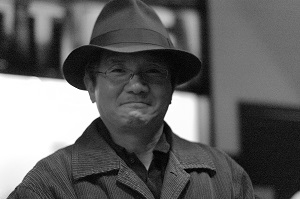Fellow during the winter term 2023/24
Jie-Hyun Lim holds the CIPSH chair of Global Easts and is the founding director of the Critical Global Studies Institute at Sogang University, Seoul. He has published widely on nationalism and Marxism in comparison, Polish history, transnational history and global memory. He is the principal investigator of the research projects of Mnemonic Solidarity: Colonialism, War, and Genocide in the Global Memory Space (2017-2024) and Series Editor of “Entangled Memories in the Global South” at Palgrave/Macmillan and “Global Easts” at the Central European University Press. His recent books include Victimhood Nationalism-Global History and Memory (Columbia Univ. Press, 2024-forthcoming), Opfernationalismus. Erinnerung und Herrschaft in der postkolonialen Welt (Klaus Wagenbach, 2024), Global Easts: Remembering, Imagining, Practicing (Columbia Univ. Press, 2022). and Mnemonic Solidarity-Global Interventions (Palgrave, 2021, co-edited with Eve Rosenhaft).
“Global Easts” is a problem space where the East remains underdeveloped compared to the developed “West” in the trajectory of global modernity. This co-figuring of the underdeveloped East and developed West has regulated our historical imagination. Viewed from the East as a problem space, the divide between East and West does not equal the boundary of Asia and Europe. Asia is in Europe, and Europe is in Asia. The idea of Global Easts was serendipity. As a historian and memory scholar wandering in the global space between Seoul and Warsaw, I realized East and West are fluid categories depending on their relational positions. In this study, I will try to heuristically juxtapose East Asia and Eastern Europe in the global history of modernity and entangled memories of the Holocaust, Stalinism, and colonialism. ‘Heuristically’ is probably better than ‘scientifically’ in exploring Global Easts beyond the East-West divide.
At the Munich Global Center of History, Jie-Hyun will work on multilingual versions of victimhood nationalism as a conceptual tool to illustrate competing memories of victimhood in the postwar Vergangenheitsbewältigung across Europe and East Asia.


